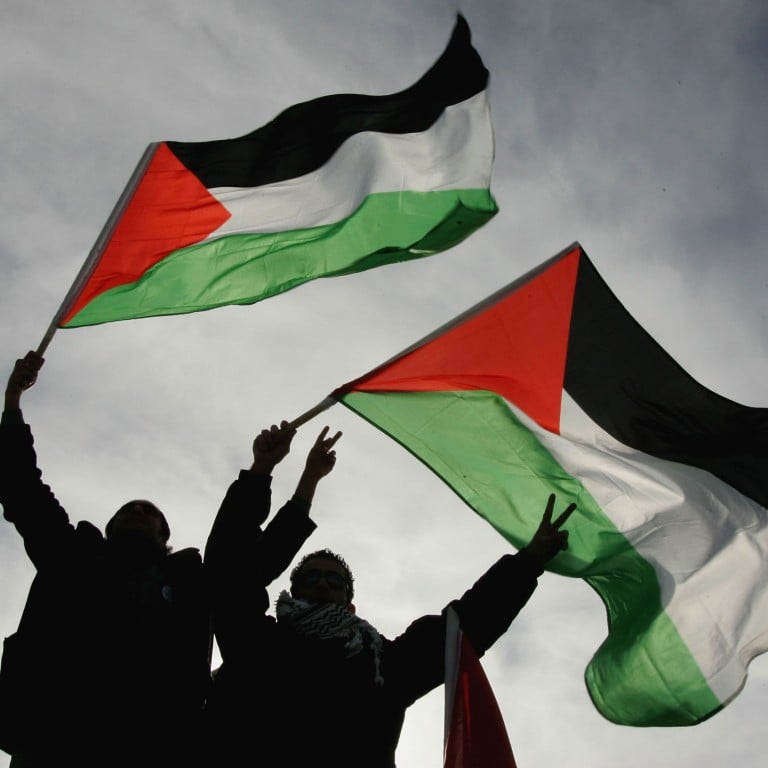
China hosts talks between rival Palestinian factions Hamas and Fatah in bid to end internal divisions: report
- Report comes after major power shuffle in the Palestinian Authority aimed at ending Israel-Gaza war
- Beijing says it is willing to mediate the conflict following last year’s peace deal between China, Iran and Saudi Arabia
China has not confirmed whether two rival Palestinian groups are meeting in Beijing, saying only that Beijing backs “internal reconciliation among Palestinian factions through dialogue and consultation”.
It followed a report from Riyadh-based Arab News that Hamas and Fatah were holding talks in Beijing on Friday aiming to end their internal divisions.
The foreign ministry has not responded to a request for comment from the Post.
Following last year’s peace deal reached between China, Iran and Saudi Arabia, Beijing said it was willing to mediate in the Israel-Gaza conflict.
Beijing has not condemned Hamas for the October 7 attack on Israel despite pressure from the West.
As strikes pummel Gaza, Israel says US military aid sends ‘strong message’ to enemies
But Hamas, which overturned the Palestinian Authority’s rule in Gaza 17 years ago, opposed the move, saying the change was “a reinforcement of a policy of exclusion and the deepening of division”.
In an official statement with other Palestinian factions, Hamas said the new government pointed to a “huge gap between the [Palestinian] Authority and the people, their concerns and their aspirations”.
China, like most countries that recognise Palestine, regards the West Bank-based Palestinian Authority as the legitimate government. But Beijing has also maintained communication with Hamas.
After a tour of the Middle East last month aimed at laying the groundwork for a ceasefire and improving humanitarian conditions in the Gaza Strip, Wang told China’s state-owned CGTN Arabic that Haniyeh, along with other Arab leaders “expressed their aspiration and hope for a greater role for China”.
Beijing has sought a more proactive role in Middle East affairs beyond economic influence after it brokered the Riyadh-Tehran peace deal last year.
Washington, the major player in the region for decades, has also called on Beijing to help rein in the regional conflict, including the crisis in the Red Sea, as well as issues related to Iran.
In Hamas video, US-Israeli hostage says living in Gaza ‘hell’
Earlier this month, as Iran and Israel exchanged air strikes, China called on Iran and Saudi Arabia to limit the escalating spillovers of the Israel-Gaza war.
During an interview with Doha-based Al-Jazeera on Thursday, Chinese Foreign Minister Wang Yi said Beijing would “firmly support” internal reconciliation among Palestinian factions through dialogue.
He reaffirmed that Beijing supported Palestine’s full membership of the United Nations, which was vetoed by the US earlier this month, and supported Palestinian nationhood and the right to self-government.
“We advocate convening a larger, more authoritative, and more effective international peace conference as soon as possible, and formulating a concrete timetable and road map to implement the two-state solution,” Wang said in the interview.
“Ultimately, [We should] achieve the peaceful coexistence of the two states of Palestine and Israel and the harmonious coexistence of the two peoples – the Arabs and the Jews.”
Israel prepares forces as conflict with Hezbollah in Lebanon intensifies
The Palestinian death toll on the Gaza Strip had risen to more than 34,000, according to the Hamas-run health body in the area.
Israel said the Hamas rampage through the southern Israeli border on October 7 killed 1,200 people, with more than 200 others taken hostage.
In February, former Palestinian prime minister Mohammad Shtayyeh met Hamas officials in Moscow, with the parties agreeing on the need for an Israeli withdrawal from Gaza and the creation of a Palestinian state.


